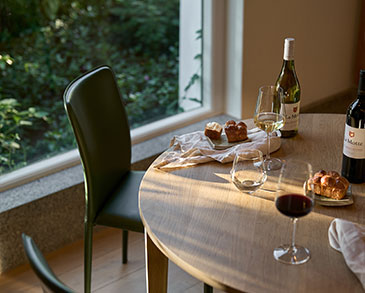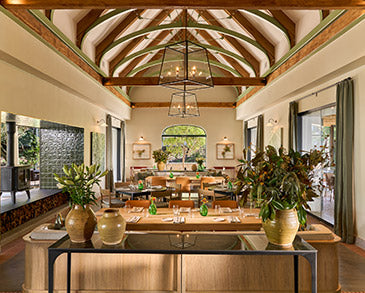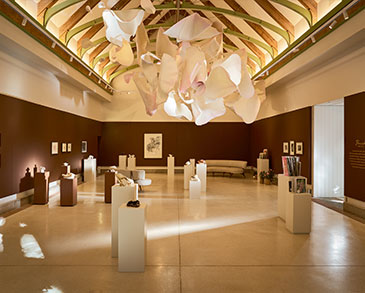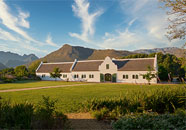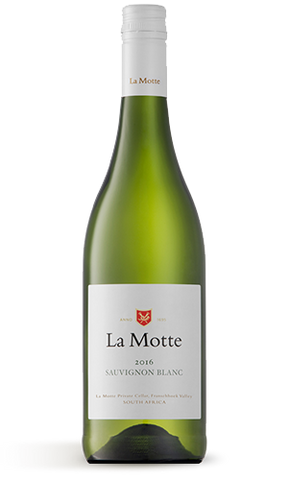
This wine was made from grapes originating from vineyards growing in different regions in the Cape winelands – Franschhoek (35%), Stellenbosch (35%), Elgin (15%) and Walker Bay (15%).
The preceding winter was wet and cold enough to ensure good budding, but in many areas only 33% of the normal rainfall was received. Initially, growth and bunch-forming were good and indicated a promising harvest. With heat-waves in October and January and an exceptional number of days with the temperature above 35 degrees Celsius, there was a substantial decrease in the potential harvest. Water for irrigation was limited. Harvesting started 10 – 14 days earlier than usual, while acids were lower and the pH higher because of the heat. During ripening, sugars were lower and, as a result, the alcohol percentage is low.
Each vineyard grows in its own macro climate and different clones are represented. All the vineyards are trellised and managed to maintain a perfect balance between leaf coverage and yield. Thanks to different terroirs, each region produces its own distinctive grapes, so grapes from each area make a unique contribution to the character of this wine.
Grapes were harvested at between 17 and 23 degrees Balling, to capture natural acids and produce fuller, riper flavours. The process was reductive, with cold fermentation at 14 °C. After fermentation, the wine was left on the lees for three months to enhance complexity. For further complexity, the wine was blended with 10% Semillon. The first batch of 126 000 cartons (6 x 750 ml) was bottled on 16 May 2016 for release as 2016 La Motte Sauvignon Blanc.
The wine has a greeny straw colour. On the nose, gooseberry is the first impression, followed by pineapple, lime and wild grass. With low alcohol, acid and residual sugar, one would expect a thin wine; with this wine it is not the case, though. The palate is well balanced, well polished and medium-round, with a clean, dry and refreshing finish.
Alcohol 12,07%
Vol Residual sugar 1,54 g/l
Total acid 5,98 g/l
pH 3,46


